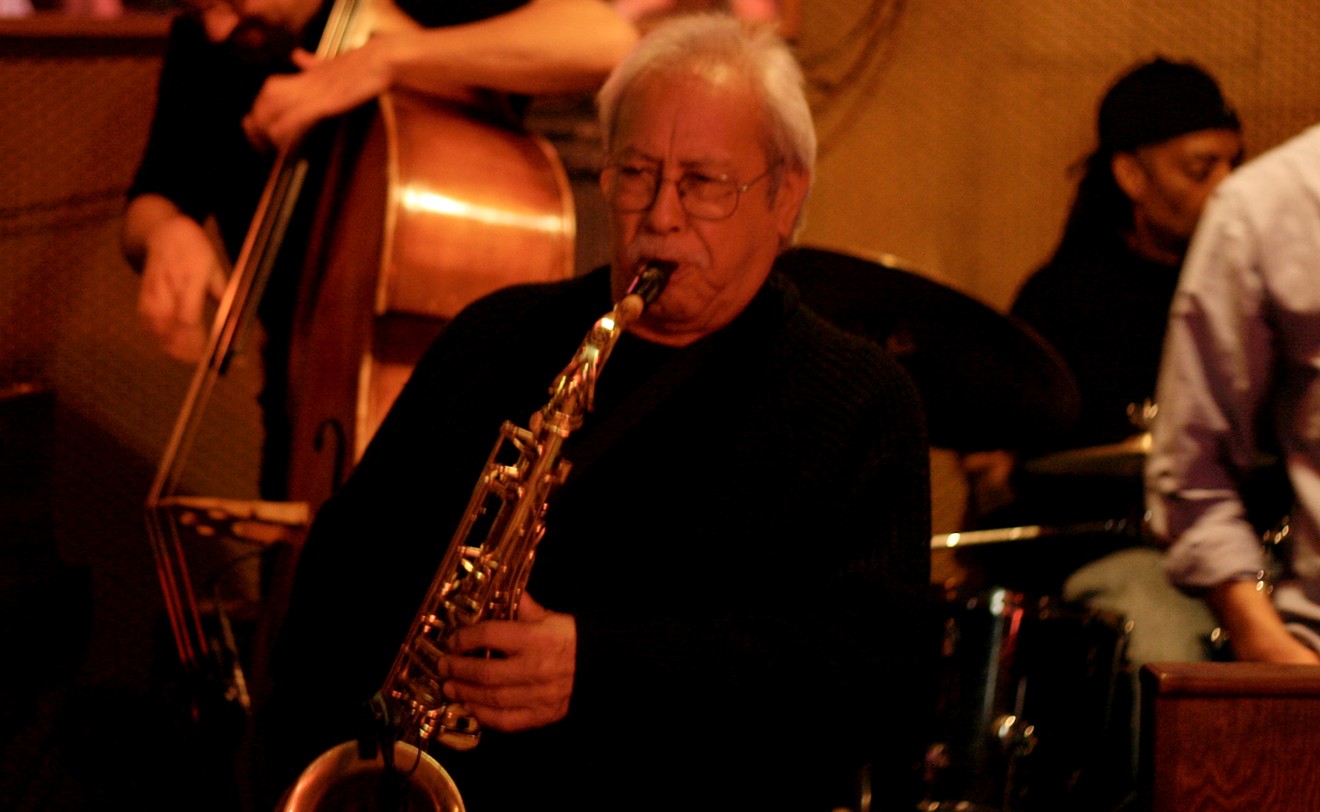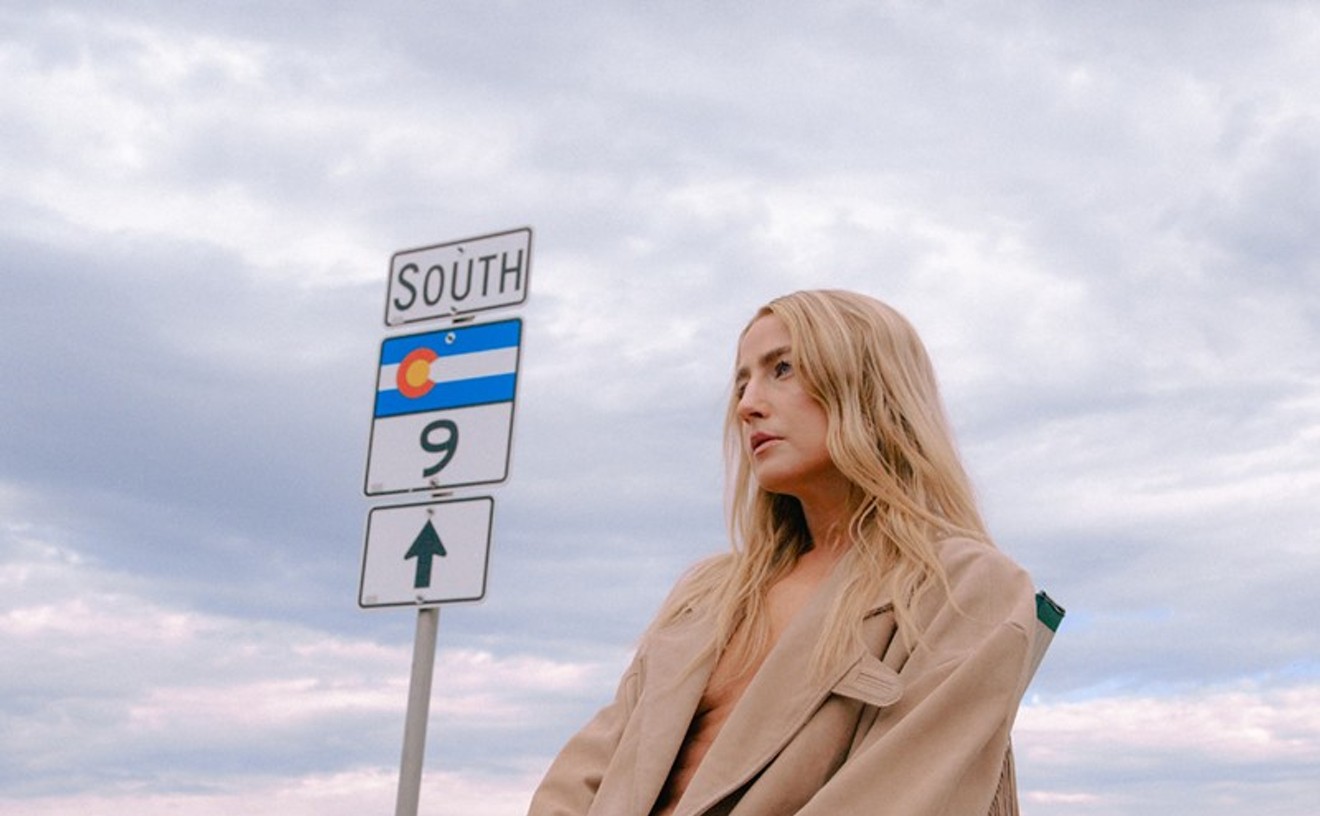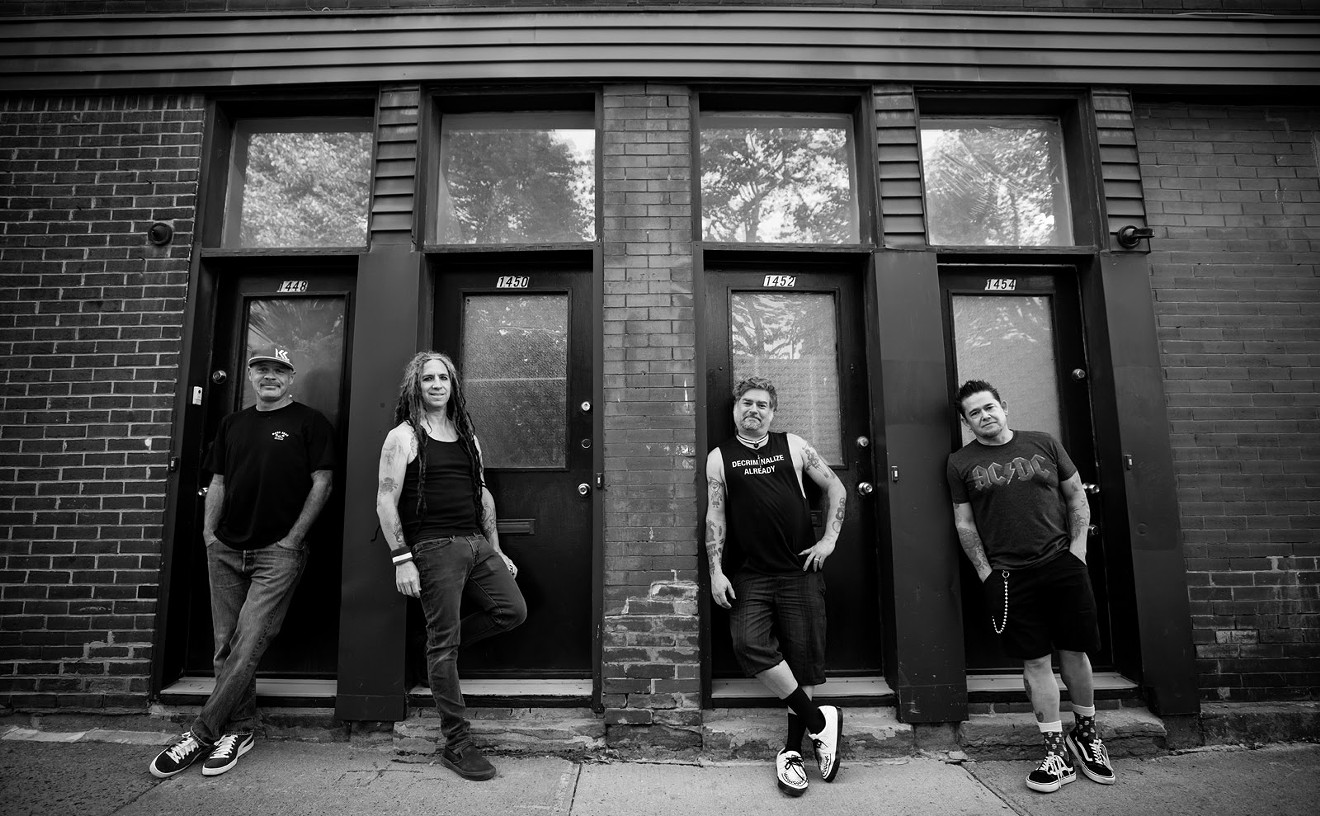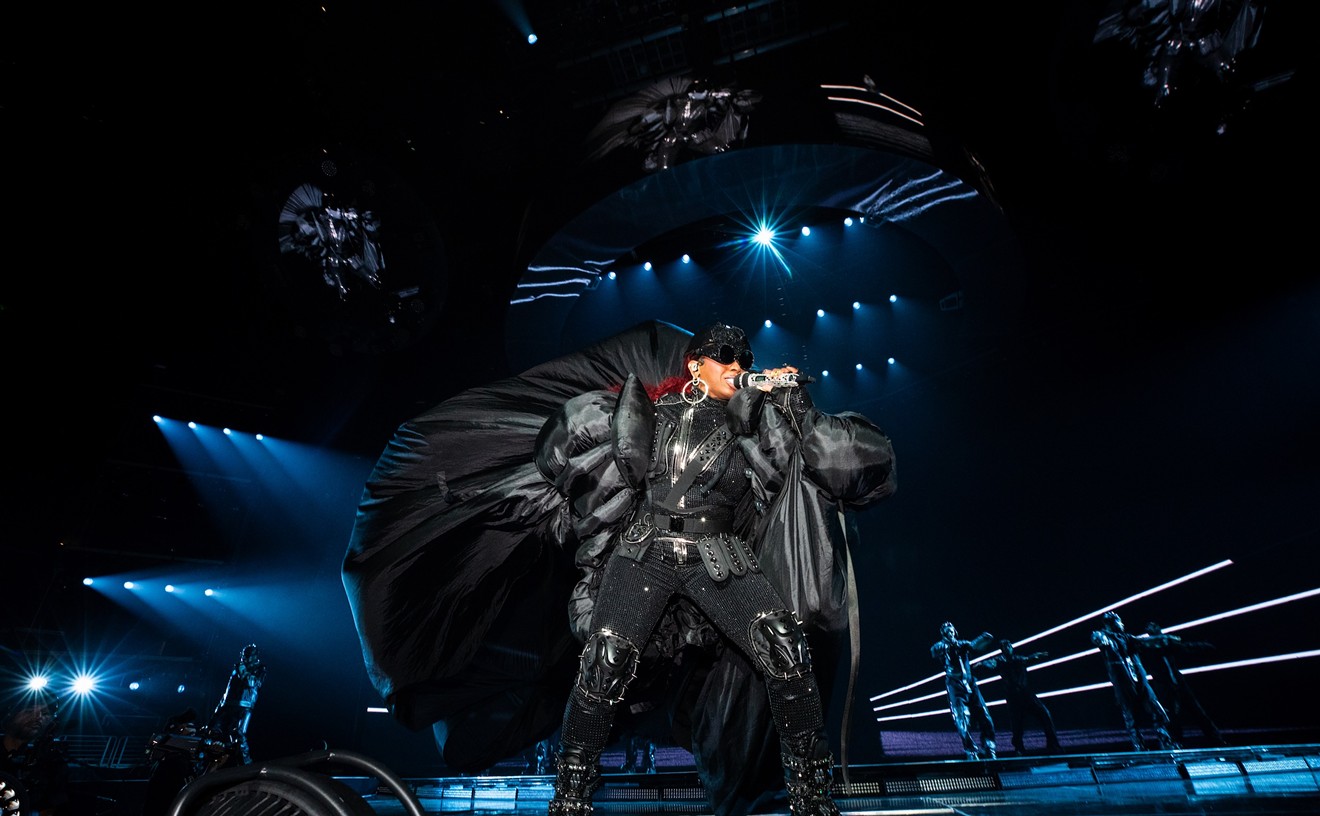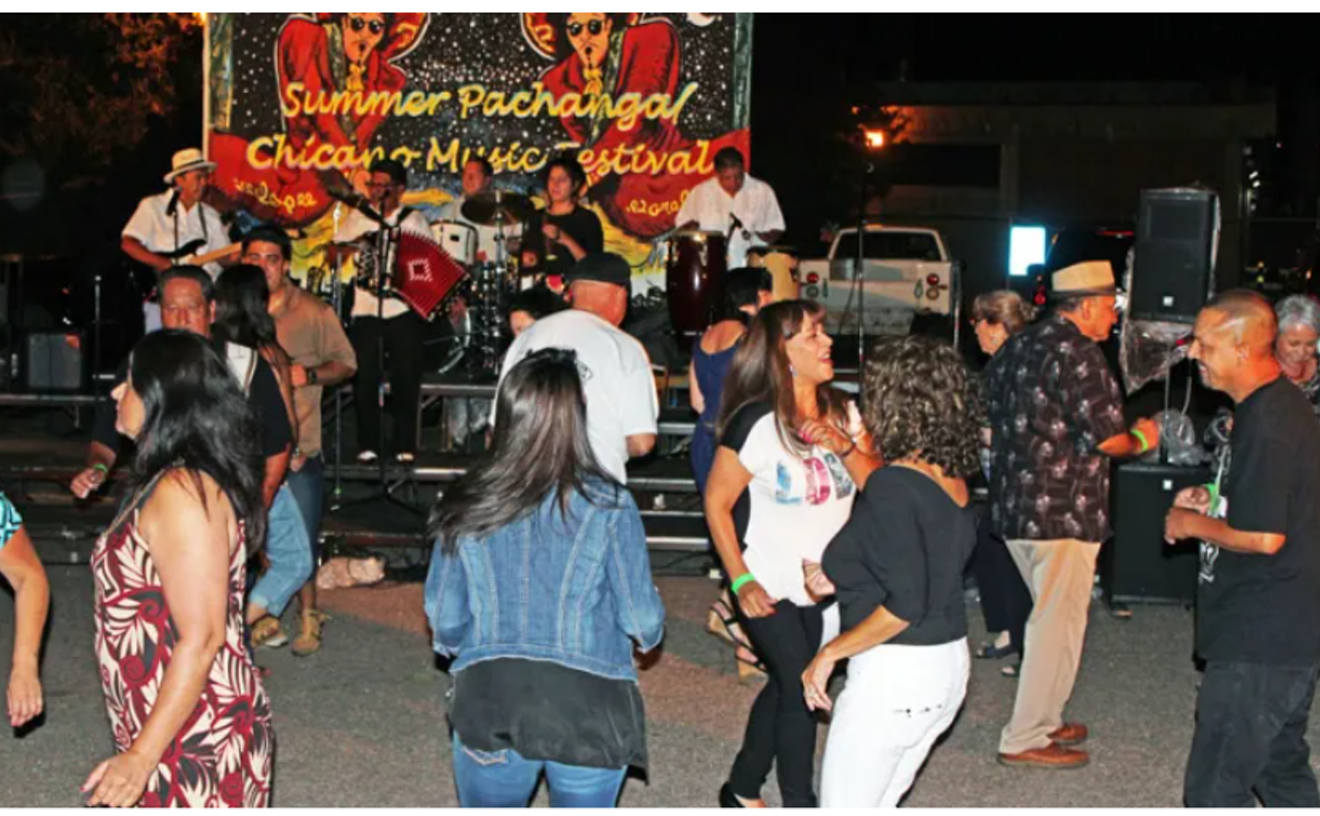The musician will be remembered at a special City Park Jazz on July 25, 2021. Read our original story published just after he passed:
Tenor saxophonist Freddy Rodriguez Sr., who spent the past four decades heading up house bands at El Chapultepec, died March 25, 2020, at age 89, from complications related to COVID-19.
During his tenure at the ’Pec, many noted touring jazz players sat in with Rodriguez’s band. There were the Marsalis brothers, Wynton and Branford, and Jaco Pastorius played Charlie Parker’s “Donna Lee” with the group.
Rodriguez would also let younger players sit in, like bassist Andrew Hudson, who started watching Rodriguez through the venue's side door.
“If it was a little quiet inside, getting toward the end of the night," Hudson recalls, “he’d say, ‘Kids, come in and sit in on a few.' We’d get in there and be able to play some blues or play a standard. It was a big deal. It’s that kind of proverbial story of: You got what it takes to get up there and play with the big boys.”
Hudson eventually joined Rodriguez’s band with Rodriguez’s son, pianist and singer Freddy Jr., and drummer Tony Black. Hudson, who spent twenty years with the group, last played with Rodriguez two weeks ago.
“He was a great improviser,” Hudson says of Rodriguez. “He knew all the bebop songs. He knew all the Miles and the Bird. He loved to play Dizzy Gillespie. He loved the big-band stuff. We would play Count Basie.
"There were songs that musicians over the years had charts they would drop off that became part of our repertoire," Hudson adds. "He was just a terrific musician. He was a musical guy. He wasn’t there trying to be the best. He wasn’t trying to be this technical master. He was musical."
Hudson says Rodriguez’s tenor playing reminded him of Dexter Gordon's. But while Rodriguez was primarily a jazz player, Hudson says they would also perform salsas and cumbias, and Freddy Jr. would sing everything from Motown and Bruno Mars to Earth Wind & Fire and Santana.
“I remember clearly, we’d get done playing Count Basie, and then Freddy would turn around say, ‘Let’s play ‘Brick House.’ And he loved playing ‘Brick House.’”
Rodriguez took pride in playing at El Chapultepec, Hudson says, and became synonymous with the jazz club.
“He was also just proud because the musicians knew that was the place to go,” Hudson says. “There’s jazz clubs, but there’s not a place that is necessarily a place where you can come and be welcomed to sit in with the house band on a regular basis. For people to get up there — young musicians who were just getting their feet wet to hobbyists that want to go down there — and then to be able to go back and tell people that you played at El Chapultepec, that was a big deal.”
Rodriguez, who was born in Denver in 1931, got his start in music when he took up clarinet at Baker Junior High School before switching to tenor saxophone at West High during the height of the bebop revolution.
After graduating in 1948, Rodriguez joined the Army and played in its band around Seattle before eventually taking a crack at the jazz scene in New York, where he lived with his wife, Josephina, and two small daughters.
In 1960, Rodriguez moved his family to Los Angeles, where he’d eventually join Charles Lloyd in the reed section of Gerald Wilson’s big band. During his time in Los Angeles, Rodriguez worked with pianist Horace Tapscott, tenor saxophonist Harold Land, singer Nancy Wilson and the Jazz Corps.
Under the direction of Tommy Peltier, the Jazz Corps had a regular gig at famed jazz venue the Lighthouse in Hermosa Beach. Rodriguez recorded with the band — which, at the time, included the great tenor player Roland Kirk — on its 1967 self-titled album for Pacific Jazz.
After moving back to Denver in 1973, Rodriguez became a mainstay in the city's jazz scene.
"I don't regret that we came back from L.A.," Rodriguez told Westword’s Bill Gallo in 2001. "I've always worked. I've played every week of my life."
And many of those weeks were spent performing with Freddy Jr., who began playing with his father when he was eleven years old.
"Personally, I feel like we communicate by some kind of karma," Rodriguez once told Westword about his rapport with his son. "I feel his sounds and his chords, the way he voices, how he's structuring a song."
"I can tell if Dad's feeling good by the way he's playing — or if something's bothering him.” Freddy Jr. told Westword in 2001. “I can feel where he's going. But that's not just because he's my father. It's because we're musicians."
Hudson says in more recent years at El Chapultepec, he’d look out into the crowd and see a wall of cell phones recording the music and taking pictures.
“It was a different kind of deal," Hudson says. "It was like everyone was there to share with everyone that they were at this iconic place, listening to this iconic musician."
[
{
"name": "Air - MediumRectangle - Inline Content - Mobile Display Size",
"component": "12017618",
"insertPoint": "2",
"requiredCountToDisplay": "2",
"watchElement": ".fdn-content-body",
"astAdList": [
{
"adType": "rectangle",
"displayTargets": "mobile"
}
]
},{
"name": "Editor Picks",
"component": "17242653",
"insertPoint": "4",
"requiredCountToDisplay": "1",
"watchElement": ".fdn-content-body",
"astAdList": [
{
"adType": "rectangle",
"displayTargets": "desktop|tablet"
},{
"adType": "rectangle",
"displayTargets": "desktop|tablet|mobile"
}
]
},{
"name": "Inline Links",
"component": "18838239",
"insertPoint": "8th",
"startingPoint": 8,
"requiredCountToDisplay": "7",
"maxInsertions": 25
},{
"name": "Air - MediumRectangle - Combo - Inline Content",
"component": "17261320",
"insertPoint": "8th",
"startingPoint": 8,
"requiredCountToDisplay": "7",
"maxInsertions": 25,
"watchElement": ".fdn-content-body",
"astAdList": [
{
"adType": "rectangle",
"displayTargets": "desktop|tablet"
},{
"adType": "rectangle",
"displayTargets": "desktop|tablet|mobile"
}
]
},{
"name": "Inline Links",
"component": "18838239",
"insertPoint": "8th",
"startingPoint": 12,
"requiredCountToDisplay": "11",
"maxInsertions": 25
},{
"name": "Air - Leaderboard Tower - Combo - Inline Content",
"component": "17261321",
"insertPoint": "8th",
"startingPoint": 12,
"requiredCountToDisplay": "11",
"maxInsertions": 25,
"watchElement": ".fdn-content-body",
"astAdList": [
{
"adType": "leaderboardInlineContent",
"displayTargets": "desktop|tablet"
},{
"adType": "tower",
"displayTargets": "mobile"
}
]
}
]

